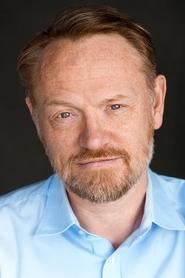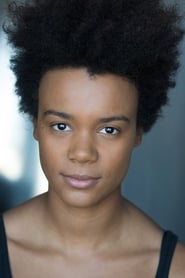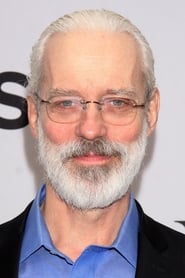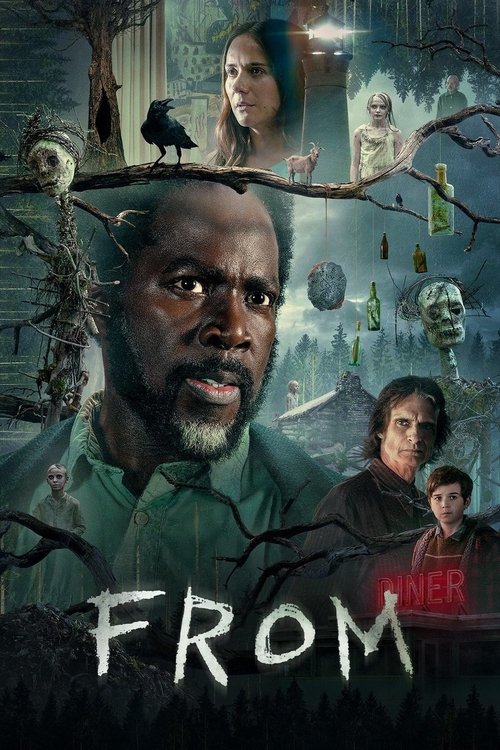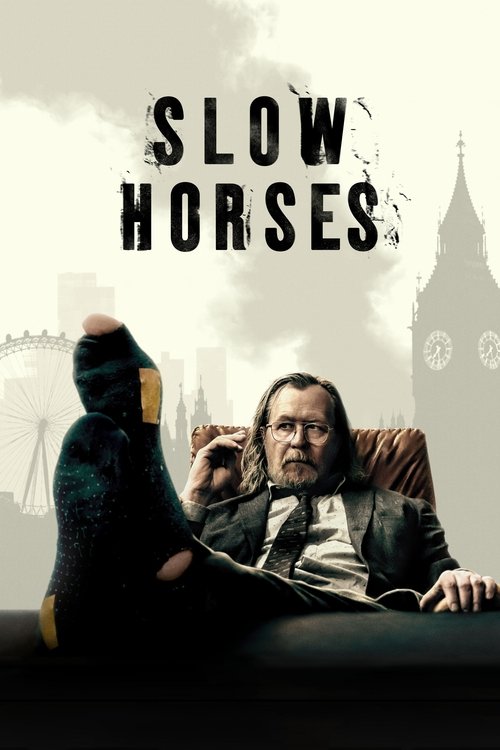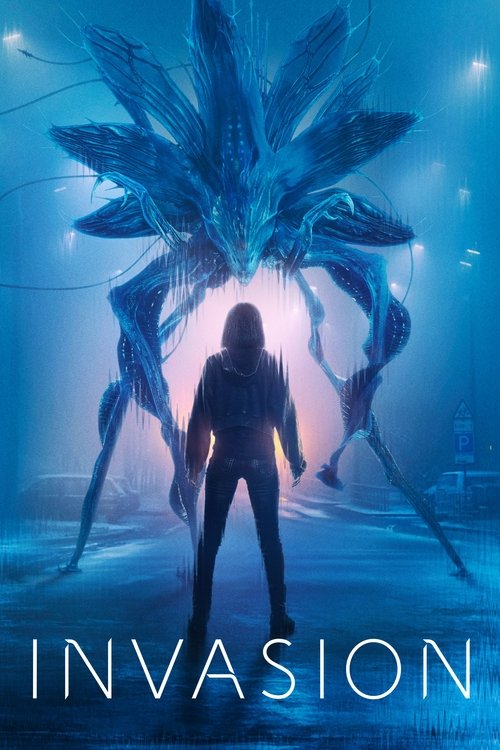
Ask Your Own Question
What is the plot?
In the distant future, the Galactic Empire, ruled by the Emperor, is at its peak, but the mathematician Hari Seldon has developed a theory of psychohistory, which predicts the fall of the Empire. Seldon is brought to trial for treason due to his predictions, which threaten the stability of the Empire. During the trial, Seldon argues that while the Empire will fall, he can create a foundation to preserve knowledge and shorten the ensuing dark age. He proposes the establishment of the Foundation on the remote planet Terminus.
Seldon is sentenced to exile along with his followers, including Gaal Dornick, a young mathematician who idolizes him. They are sent to Terminus, where they begin to establish the Foundation. Seldon's plan involves creating a repository of knowledge, the Encyclopedia Galactica, to preserve human knowledge. As they settle on Terminus, they face challenges from the Empire, which sees their work as a threat.
Meanwhile, on the planet Trantor, the Emperor, who is a clone and part of a lineage of clones, grapples with the implications of Seldon's predictions. The current Emperor, Brother Day, is particularly concerned about maintaining control over the Empire and views Seldon's actions as a direct challenge. He sends agents to monitor the situation on Terminus.
As the Foundation begins to grow, they encounter political and social challenges. The first major conflict arises when the Foundation's leaders, including Gaal and Seldon's other followers, must navigate the politics of the neighboring planets. They face hostility from the local warlords who do not want to lose their power to the Foundation's influence.
In a pivotal moment, Gaal discovers that the Foundation's survival depends on forming alliances with these warlords. They negotiate a deal that allows the Foundation to gain resources in exchange for technological advancements. This decision marks a turning point, as it solidifies the Foundation's position in the galaxy.
Back on Trantor, Brother Day becomes increasingly paranoid about Seldon's influence. He orders the assassination of key figures associated with the Foundation, but Gaal and the others manage to evade these attempts. They realize that they must be proactive in their defense and begin to build a network of supporters across the galaxy.
As the story progresses, the Foundation faces a crisis when a warlord named the Mule emerges, who possesses the ability to manipulate emotions and is a significant threat to Seldon's plan. The Mule's rise to power disrupts the Foundation's carefully laid plans, and they must confront this new enemy. Gaal and the other leaders strategize on how to counter the Mule's influence, leading to a series of confrontations.
In a climactic battle, the Foundation's forces engage with the Mule's army. The conflict is intense, with both sides suffering heavy losses. Gaal, driven by a desire to protect the Foundation and fulfill Seldon's vision, leads a daring mission to confront the Mule directly. They manage to infiltrate the Mule's stronghold, but the Mule's powers make him a formidable opponent.
During the confrontation, Gaal realizes that the Mule's abilities stem from a deep-seated trauma and loneliness. This revelation allows Gaal to connect with the Mule on an emotional level, leading to a moment of vulnerability. However, the Mule ultimately chooses power over connection, and the battle continues.
In the aftermath of the conflict, the Foundation is left to pick up the pieces. Gaal and the remaining leaders reflect on their losses and the challenges ahead. They understand that the fight for the future of the galaxy is far from over, and they must continue to adapt and evolve in the face of new threats.
As the season concludes, the Foundation stands at a crossroads, with the looming presence of the Empire and the unpredictable nature of the Mule still hanging over them. Gaal, now more determined than ever, vows to honor Seldon's legacy and ensure that the Foundation survives against all odds. The story ends with a sense of uncertainty, setting the stage for future conflicts and developments in the galaxy.
What is the ending?
In the ending of the TV show "Foundation," produced in 2021, the story culminates with the emergence of a new threat to the Galactic Empire, the revelation of the true nature of the Foundation's plan, and the fates of key characters like Hari Seldon, Gaal Dornick, and Brother Day.
As the final episodes unfold, we find ourselves in the heart of the Galactic Empire, where the tension between the ruling elite and the Foundation reaches a boiling point. The scene opens with Gaal Dornick, who has been grappling with the implications of Hari Seldon's psychohistory. Gaal is now a pivotal figure, having grown from a novice to a leader within the Foundation. She stands in a dimly lit chamber, surrounded by holographic projections of the galaxy, contemplating the future of humanity and the Empire.
Meanwhile, Hari Seldon, the architect of the Foundation's plan, is confronted by Brother Day, one of the ruling clones of the Empire. Brother Day, feeling threatened by the Foundation's growing influence, seeks to undermine Seldon's vision. The tension between them escalates as Seldon reveals the existence of a second Foundation, a hidden group that is meant to safeguard the future of humanity. This revelation shocks Brother Day, who realizes that his control over the Empire is more fragile than he believed.
In a parallel storyline, we see the character of Brother Dawn, the youngest clone of the ruling trio, struggling with his identity and the expectations placed upon him. He witnesses the growing unrest among the citizens of the Empire and begins to question the morality of their rule. This internal conflict leads him to make a pivotal decision that will impact the future of the Empire.
As the climax approaches, Gaal and her allies devise a plan to confront the Empire. They gather their forces and prepare for a showdown, knowing that the fate of the Foundation and the galaxy hangs in the balance. The scene shifts to a grand assembly where Gaal addresses the gathered leaders, rallying them to stand against the oppressive rule of the Empire. Her speech is passionate, igniting hope among the people.
In the final confrontation, the Foundation's forces clash with the Empire's military. Explosions and chaos ensue as both sides fight for their vision of the future. Gaal, demonstrating her growth as a leader, leads a daring maneuver that turns the tide of battle. Meanwhile, Brother Day, desperate to maintain his power, makes a last-ditch effort to crush the Foundation, but his plans unravel as the truth about the second Foundation comes to light.
As the dust settles, the aftermath reveals the fates of the main characters. Gaal emerges victorious, having secured a new path for the Foundation. She stands amidst the ruins of the battlefield, looking out at the stars, symbolizing the hope for a brighter future. Hari Seldon, having fulfilled his purpose, fades into the background, his legacy now firmly established.
Brother Day, on the other hand, faces the consequences of his actions. His grip on power is shattered, and he is left to reckon with the reality of a changing galaxy. Brother Dawn, having chosen a different path, steps away from the shadows of his predecessors, hinting at a new direction for the Empire.
The series concludes with a sense of uncertainty and possibility, as the characters reflect on their journeys and the challenges that lie ahead. The final scene captures Gaal looking up at the stars, a reminder that the story of humanity is far from over, and the future remains unwritten.
Who dies?
In the 2021 adaptation of "Foundation," several characters meet their demise, each death serving to advance the plot and deepen the emotional stakes of the story. Here are the notable deaths:
-
Brother Day (Dusk): Brother Day, one of the ruling clones of the Galactic Empire, faces a significant turning point in his life. In the first season, he is portrayed as a calculating and power-hungry leader. His death occurs in the season finale, where he is confronted by Brother Dawn and the implications of the Foundation's growing influence. In a tense and emotional confrontation, Brother Day is ultimately betrayed and killed by Brother Dawn, who sees the need to break free from the oppressive legacy of their shared existence. This act symbolizes a shift in power dynamics within the Empire and sets the stage for future conflicts.
-
Gaal Dornick's Father: Gaal Dornick, a brilliant mathematician and one of the central characters, experiences a personal tragedy early in the series. His father is executed by the Empire for his dissenting views against the oppressive regime. This event occurs in the first episode, establishing Gaal's motivations and deep-seated resentment towards the Empire. The emotional weight of this loss drives Gaal to seek justice and contribute to the Foundation's cause, highlighting the personal stakes involved in the larger political struggle.
-
The Mule's Victims: While the character of the Mule is not fully introduced in the first season, the implications of his actions lead to the deaths of several characters in the background. The Mule is a powerful mutant with the ability to manipulate emotions, and his rise to power results in widespread chaos and destruction. The deaths of those who oppose him or fall victim to his influence are hinted at, creating a sense of foreboding for the future of the Foundation and the galaxy.
-
Brother Dawn: In a shocking twist, Brother Dawn's fate is left ambiguous at the end of the season. After he kills Brother Day, he is faced with the consequences of his actions and the weight of leadership. While he does not die in the first season, the tension surrounding his character suggests that his path may lead to a tragic end, reflecting the cyclical nature of power and betrayal within the Empire.
These deaths are pivotal moments that not only shape the narrative but also explore themes of power, sacrifice, and the personal costs of rebellion against tyranny. Each character's demise resonates with the overarching message of the series, emphasizing the fragility of civilization and the enduring struggle for freedom.
Is there a post-credit scene?
In the 2021 adaptation of "Foundation," there is no post-credit scene following the episodes. The series concludes each episode without additional scenes or content after the credits roll. The focus remains on the narrative and character development throughout the episodes, leaving viewers to reflect on the story as it unfolds.
What is the significance of Hari Seldon's psychohistory in the story?
Hari Seldon, a mathematician, develops the science of psychohistory, which combines history, sociology, and statistical mathematics to predict the future of large populations. His predictions about the fall of the Galactic Empire set the foundation for the events that unfold throughout the series.
How does Gaal Dornick's character evolve throughout the series?
Gaal Dornick starts as a young mathematician who becomes embroiled in Seldon's plans. As the story progresses, Gaal faces challenges that test their beliefs and abilities, ultimately becoming a key figure in the fight to preserve knowledge and civilization.
What role does the character of Brother Day play in the Galactic Empire?
Brother Day is one of the three ruling clones of the Empire, representing the middle age of the trio. He is focused on maintaining the Empire's power and stability, often clashing with Brother Dawn and Brother Dawn's more progressive views.
What is the relationship between the characters of Brother Dawn and Brother Day?
Brother Dawn is the youngest clone and represents the future of the Empire, while Brother Day is the established ruler. Their relationship is complex, as Brother Dawn seeks to learn from Brother Day's experience, but also struggles with the constraints of his predetermined role.
How does the planet Terminus become significant in the story?
Terminus is established as the location for the Foundation, a group created by Hari Seldon to preserve knowledge and culture after the fall of the Empire. Its significance grows as it becomes a center for scientific advancement and a beacon of hope for the future.
Is this family friendly?
In the TV show "Foundation," produced in 2021, there are several scenes and themes that may be considered potentially objectionable or upsetting for children or sensitive viewers. Here are some aspects to be aware of:
-
Violence: The series includes scenes of conflict and battles, which may depict physical confrontations and the aftermath of violence. Some scenes may show characters in distress or facing life-threatening situations.
-
Death and Loss: Characters experience significant loss, including the death of loved ones. These moments can be emotionally charged and may be distressing for younger viewers.
-
Political Intrigue: The show explores complex political themes, including betrayal and manipulation, which may be difficult for younger audiences to fully grasp and could lead to confusion or anxiety.
-
Mature Themes: There are discussions and depictions of power struggles, moral dilemmas, and existential questions that may be heavy for children.
-
Dystopian Elements: The setting of a decaying empire and the portrayal of societal collapse may evoke feelings of fear or uncertainty.
-
Intense Emotional Moments: Characters face personal struggles and emotional turmoil, which can be intense and may resonate deeply with sensitive viewers.
These elements contribute to a narrative that, while rich and engaging, may not be suitable for all audiences, particularly younger children or those who are sensitive to such themes.



